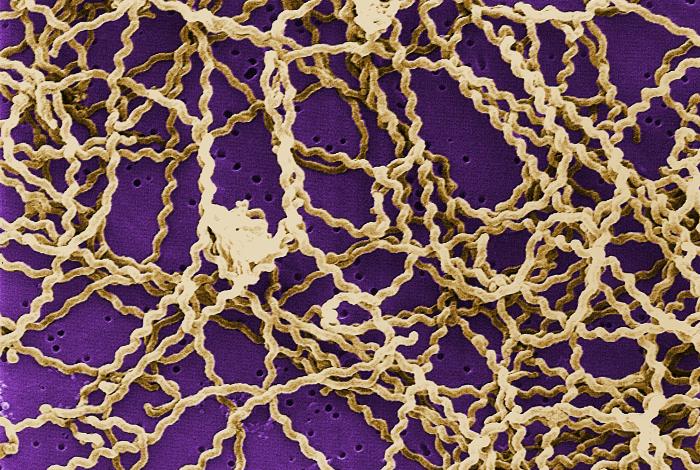A new study by an international team of researchers reveals that a single-dose universal vaccine could protect against many forms of leptospirosis bacteria.
The study recently appeared in eLife journal.
This vaccine could help prevent life-threatening conditions caused in leptospirosis such as Weil’s disease and lung haemorrhage, which have fatality rates of 10% and 50% respectively.
A group of spirochetes (spiral-shaped bacteria) called leptospires cause Leptospirosis. Many mammals including rats harbour these bacteria in their kidneys and release them via urine.
This when comes in contact with water or soil can infect Humans and other animals. This has a big impact on human populations and leptospirosis is an economically important animal health problem, making it a significant health challenge. This infection needs to be fought with collaborative effects across many disciplines and sectors .
The bacteria family of Leptospira is made up of 64 species with around 300 different varieties called serovars (distinct variation within a species of bacteria). Because of this, creating a proper vaccine is challenging. It is because researchers need to find a common feature of the bacteria which can trigger an immune response.
Elsio Wunder Jr, a member of the research team, explained that they have recently found a novel protein named FcpA in the flagella of Leptospira which enables it to move and penetrate human and animal tissues. The team focused on finding whether using engineered Leptospira that lacks a functional FcpA molecule has the potential for a vaccine that could provide major public health benefit.
They tested the mutated FcpA Leptospira as an attenuated vaccine i.e a live bacteria that cannot cause disease. The vaccine when given to hamsters and mice disseminated throughout the body before being cleared within a week in the hamsters and a two in the mice.
No traces of the mutated Leptospira could be detected in kidney tissue or blood after this time point, which meant that the attenuated vaccine is cleared by immune system before it results in disease or death.
In order to find out if the vaccine could protect against all other types of the infection, the team tested a single dose of mutant Leptospira and compared this against heat-killed Leptospira to see whether they could prevent infection and disease by a range of similar and different serovars.
They found that Immunization with heat-killed vaccine gave only a partial protection against similar serovars but not against all the serovars. In contrast, the attenuated vaccine provided protection against serovars belonging to three different species of Leptospira, these comprise a majority of serovars of importance to human and animal health.
Also, the mice showed they generated antibodies which recognized a wide range of proteins across the different species of Leptospira. The team also found that 41 different proteins can be future target proteins. Around 70% of these proteins looked similar, suggesting they could likely to be important to the survival of the microbes ,
The team added that this study is a proof that a universal leptospirosis vaccine candidate can prevent both death and kidney colonisation in animal models. These findings take us one step closer to achieving an effective vaccine .
Journal Reference:
Elsio A Wunder, Haritha Adhikarla, Camila Hamond, Katharine A Owers Bonner, Li Liang, Camila B Rodrigues, Vimla Bisht, Jarlath E Nally, David P Alt, Mitermayer G Reis, Peter J Diggle, Philip L Felgner, Albert Ko. A live attenuated-vaccine model confers cross-protective immunity against different species of the Leptospira genus. eLife, 2021; 10 DOI: 10.7554/eLife.64166

